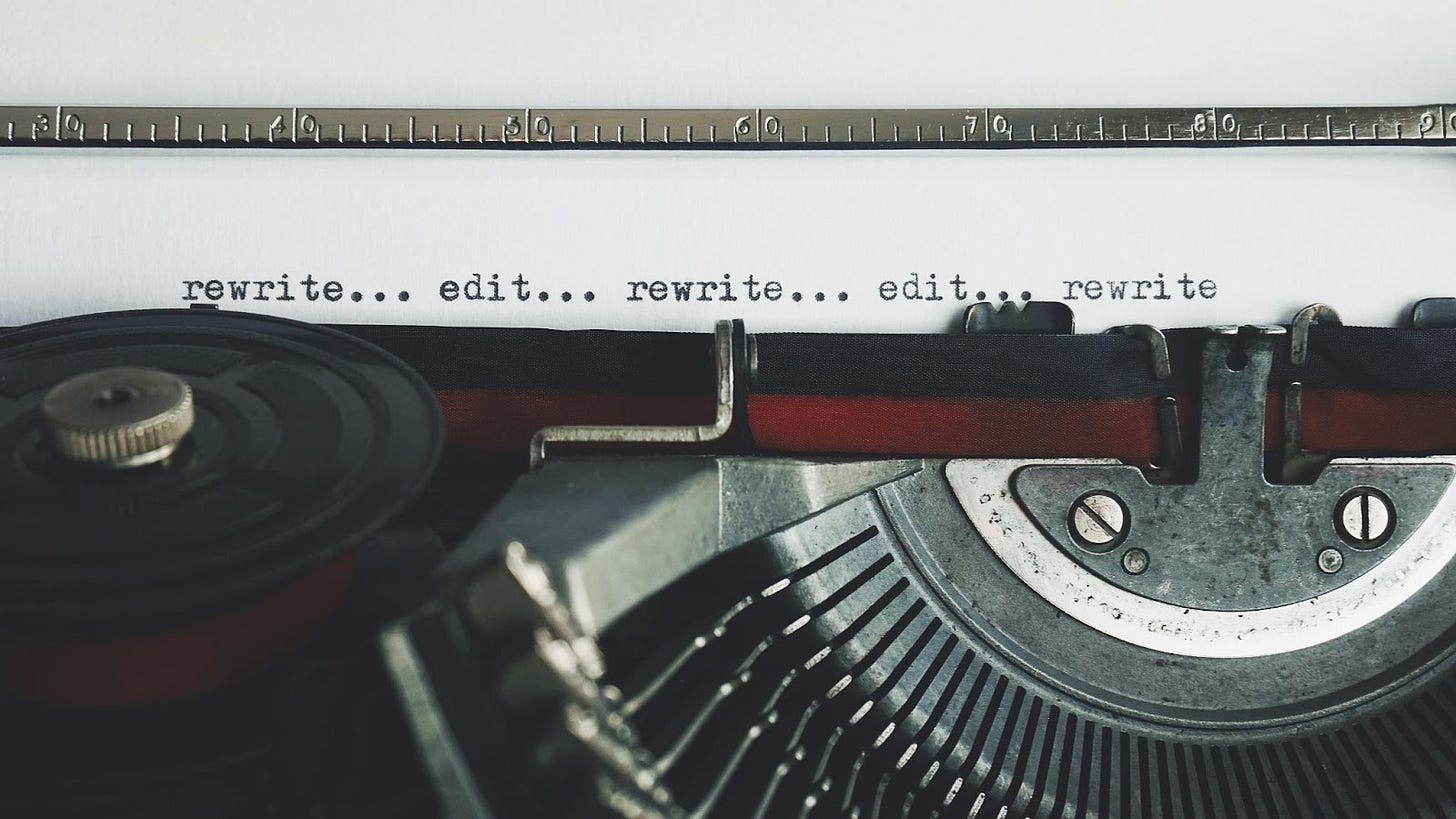What makes a reader decide to close a book before it’s finished?
This last week I posted on several Facebook groups the following question.
What are the biggest turn offs, or main reasons you stop reading a book?
Boy did I get a lot of responses. Right now it’s somewhere around 800 comments, and new ones are still coming in. As a writer, you need to understand the audience, who they are, what they want, and more importantly, what they don’t want. We’ve all picked up a book and realized it wasn’t for us. According to my post, there are also tons of people who picked up a book that should have been for them, and yet they still put it down.
I went through a lot (not all) of these comments and organized them into a few categories to help you understand what you should try and avoid when you write.
Before we get into it, I want to put an asterisk here.
* These are not rules. You can choose to ignore them, especially if they don’t apply to your genre. Romance novels are much more likely to contain sex scenes because that is more in line with what readers want. History buffs, not so much. So take these with a grain of salt and use them as a lodestone to guide you in your writing.
I sorted the responses into 6 rough categories. Over the next few weeks I’ll dive into a few of them and share some further thoughts and insights.
- Overall Story
- You as a Writer
- Content you Include
- Character Development
- Editing
For each section some reasons are very straightforward, while others really just depend on your audience. With that being said, make sure you are reading books in the genre you want to write in, this will give you a feel for what type of content you should include, and possibly what to avoid.
Overall Story
The top reasons in this sections are:
Slow Start/Pacing is Bad: You have a limited amount of time to capture your reader’s interest. If you don’t do it in the first few pages, they will likely set your book down and not pick it up. Think TV shows. I’ve had friends tell me, just get through the first season and it gets better. You can’t afford that with your book. Your first season has to draw the reader in so they have no choice but to finish. Don’t start your book like this tortoise.

Boring Plot: Even I tried to get a little clarity on what this meant. Essentially, make sure that the story you are writing is going to be a good one to read. Pitch the idea to friends, and fellow readers. Are they drawn in after just 30 seconds? Or do they really have to make an effort to get on board with your idea?
Predictable: After a chapter or two the reader feels like they already know how the books will end.
Random/Irrelevant Plot Points: Make sure that subplots are connected to your overall story. If the reader feels like they are constantly making side trips, they’ll lose interest in your main storyline.
Not Enough Research/Inconsistencies with the Time Period: If you want to write about a specific era, do some basic research. I’m not saying write a scholarly article or a dissertation before you write. Make sure you take some time and learn jargon, and the fundamentals of what you include in your story. If you don’t know something, make sure it is subtle and don’t go into detail. One example someone shared. The author wrote about baking and the MC put frosting on the cupcakes, then put them in the oven….
You as a Writer
A lot of the reasons in this section have to do with things that will take practice as a writer. The best way to get better is practice, practice, practice. So don’t worry if your writing falls into one of these categories right now. Brandon Sanderson said (not sure where the exact quote is) that it will likely take several books before you figure things out. Or something akin to that.

Too much Detail/Unnecessary Descriptions: The simplest test to know if you are providing too much detail or description is to ask, “does this drive the plot forward?” If the answer is no, you don’t need it.
Poor Writing: You’ve read poor writing before. Just write and practice. Make sure you have beta readers who can provide constructive criticism. My recommendation, don’t post on facebook asking for feedback. Strangers can be harsh.
Telling not Showing: Readers don’t want to be told what your character is doing, they want to see it. The quiver in the hand, the shaking in the voice, veins popping out of the forehead.
Point of View: There were a few people who DNF a book because of First person POV, but if you do it well, don’t let that stop you. Just make sure that your POV is consistent throughout your story. Head jumping and going from third person to first person is jarring and will make your readers confused.
Content you Include
With the following, some are genre specific, but if it’s not particular to the genre, strongly consider not including the following content.
Pornographic/Graphic Sex Scenes: This isn’t necessary to show a deep relationship between characters. One person pointed out that often the dialogue that takes place before or after sexy time is more relevant to driving the story forward. Seeing two characters love life in graphic detail is extremely off putting, especially in a story where it’s not expected. This was the number one reason people said why they put a book down.
Excessive Language: Only once (and it was mocking someone else) have I seen someone say the following. “That book would have been better with more vulgarity.” It doesn’t happen. If you feel the need to include vulgarities keep them inline with a character’s personality and use them sparingly. Personally this is definitely a reason to put a book down and not recommend it.
The rest weren’t as overwhelming as these two, but were still commented by quite a few people.
Sexual Abuse
Graphic Violence
Racism
Preachy or Religious
Political (Pushing the Authors Agenda)
Animal Abuse
Character Development
Characters are the driving force of your story. Even if you have a simple plot, or one that has been written a thousand times before, if you have strong characters readers will fall in love with your books. The opposite is also true for a lot of people. Characters make people set books down.
Bland/Undeveloped Characters: Your character could have the coolest backstory, abilities, or personality, so make sure that comes across in your writing. Take time to give your characters real emotions and real motivations.

Unlikeable/Unrelatable Characters: Readers read to escape, dream, and live a thousand different lives. If your readers can’t see bits and pieces of themselves in your characters, they won’t be able to immerse themselves in your book.
Boring/Flat Main Characters: Similar to bland characters, take the time as you plan your characters to ensure they have multiple dimensions. Use character profile sheets to flesh them out before you ever start writing.
Too Many Characters: Having a lot of characters isn’t a problem (depending on the scope of your story), but trying to introduce too many too soon will be overwhelming and your reader will just give up.
Poorly Written Female Characters: This is mostly for the male writers out there. Make sure you have a female in your writing group or among your beta readers. Have her make sure you females behave like women.
Editing
Thankfully a lot of these two problems can be solved with good editing! So please, please, make sure you have multiple edits of your story. This person gets it.

Spelling/Grammatical Errors: When you’re in the flow and the words are flying from your fingers, it’s easy to misspell a word, or use than instead of then. Going over your work with a half dozen fine tooth combs will help you catch these problems before your book goes to publication. Readers shared that a few errors are forgivable, but too many, especially in the beginning, is ground for a DNF.
Plot Holes/Inconsistencies/Unrealistic: My writing group has been the absolute best for this. Use them as your story takes shape to identify the issues with your overall story. If you can figure these out before you finish your first draft it will save you a ton of time. But at the very least, your editor/beta readers should help you identify mistakes with plot.
Wrap Up
There you have it. Some of the most common reasons readers DNF a book. I hope some of these were eye opening and will help you become a better writer. If you want to get a deep dive into each of these sections, consider subscribing to my newsletter.
Quote
“You can’t use up creativity. The more you use, the more you have.” -Oscar Wilde
More Words
Short Story: This is a short story from one of my Writing group members. It has a nice plot twist. The Dark One
Book Recommendation: Benjamin Ashwood – AC Cobble (It’s been a while but I remember liking it!)
Pinterest Post: Difference between a Villain and an Antagonist
